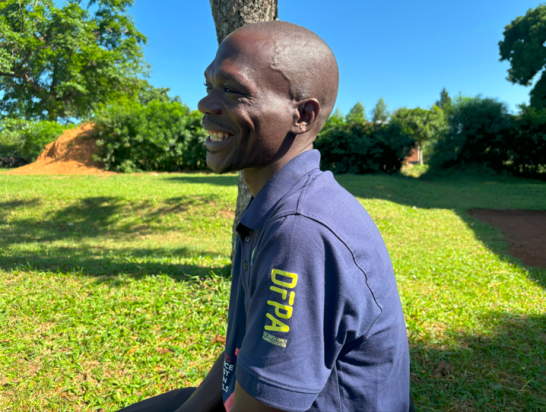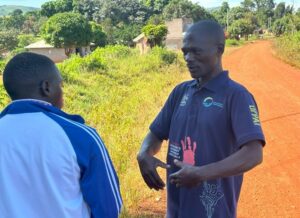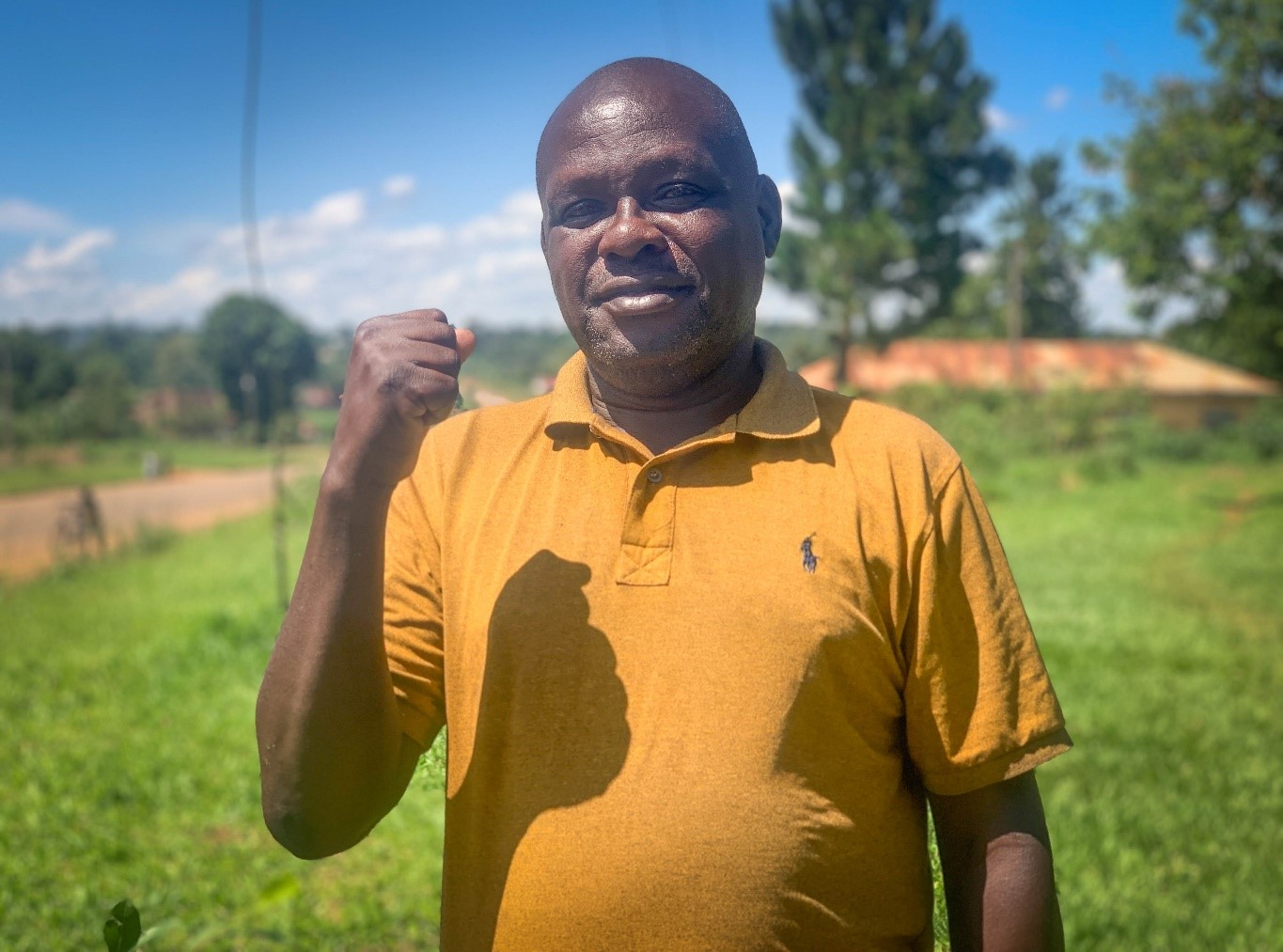Nelson, a Male Champion trained and empowered under the Promise II Project-DFPA, stands as a beacon of hope in his community, earning commendation for his tireless efforts. Nelson has embarked on a mission to sensitize people on the importance of gender equality while fearlessly speaking out against Sexual and gender-based violence (SGBV) and other gender-related injustice.
While the inclusion of women remains paramount in advancing Sexual and Reproductive Health and Rights (SRHR) and gender justice, the engagement of men and boys is equally essential for achieving lasting change.
In the countryside of Kyabigambire Central, one Sunday Nelson is breaking stereotypes by assuming the proactive role of a male champion, advocating for SRHR and gender justice. Dismantling the notion that SRHR and gender equality are solely women’s issues.
Serving as an influential role model who is challenging harmful gender norms and stereotypes within his community.
Sunday Nelson’s dedication to this cause goes beyond mere advocacy and awareness rising; he immerses himself in the community, actively engaging men and boys in crucial conversations about gender issues and empowering couples and families to embrace gender equality and justice. He has demonstrated that supporting gender equality is not only beneficial but also essential for creating healthier and more equitable societies.
Drawing from his past experience as a VHT, Nelson transitioned into his role as a male champion, now collaborating with local leaders to challenge traditional notions of masculinity that perpetuate harmful behaviors and attitudes. His unique ability to navigate through complex issues with compassion and understanding has earned him praise and admiration from those he has helped.
By redefining what it means to be a man, Nelson has encouraged other men to embrace values such as mutual respect, consent, accountability and equality, reaching accountability and collective action.
In an interview with me, Nelson stated;
“I’m passionate about creating change in my community. I believe sensitizing communities on gender equality and SGBV is key to fostering positive change, sparking meaningful dialogue and action. As a committed male champion, selected by the community, I’m engaging men in discussions about gender issues to strengthen families and communities. The Promise II project has been a turning point for me, offering training and fostering personal and professional growth. I’ve undergone a remarkable journey of growth and advancement.”
As Nelson continues to make a positive impact in his community, his story serves as a testament to the transformative power of dedication, compassion, underscoring the importance of community empowerment, mobilization, and meaningful participation. Meaningful participation from men and boys is crucial for challenging and dismantling patriarchal structures that perpetuate inequality, discrimination and denial of services. By actively involving men and boys in advocacy efforts, male champions emphasize that achieving gender justice is a collective responsibility that benefits everyone.
“With Nelson’s and the LC’s support, my wife and I successfully addressed our recent marital issues. Our disagreements had resulted in violence, but Nelson’s guidance helped me become a better husband. The positive transformations are now evident in our home.” – stated one of the beneficiaries.
Stereotypes have long permeated our perceptions of gender roles and responsibilities, often relegating men to certain societal expectations that limit their ability to engage in issues such as sexual and reproductive health and rights (SRHR) and gender justice. One of the primary reasons for involving male champions in advancing SRHR and gender justice is their unique ability to resonate with other men. Research indicates that men are more likely to listen to and heed the advice of their male counterparts.
By Fatiha Nkoobe
Communications Officer,
Center for Health, Human Rights and Development (CEHURD).



